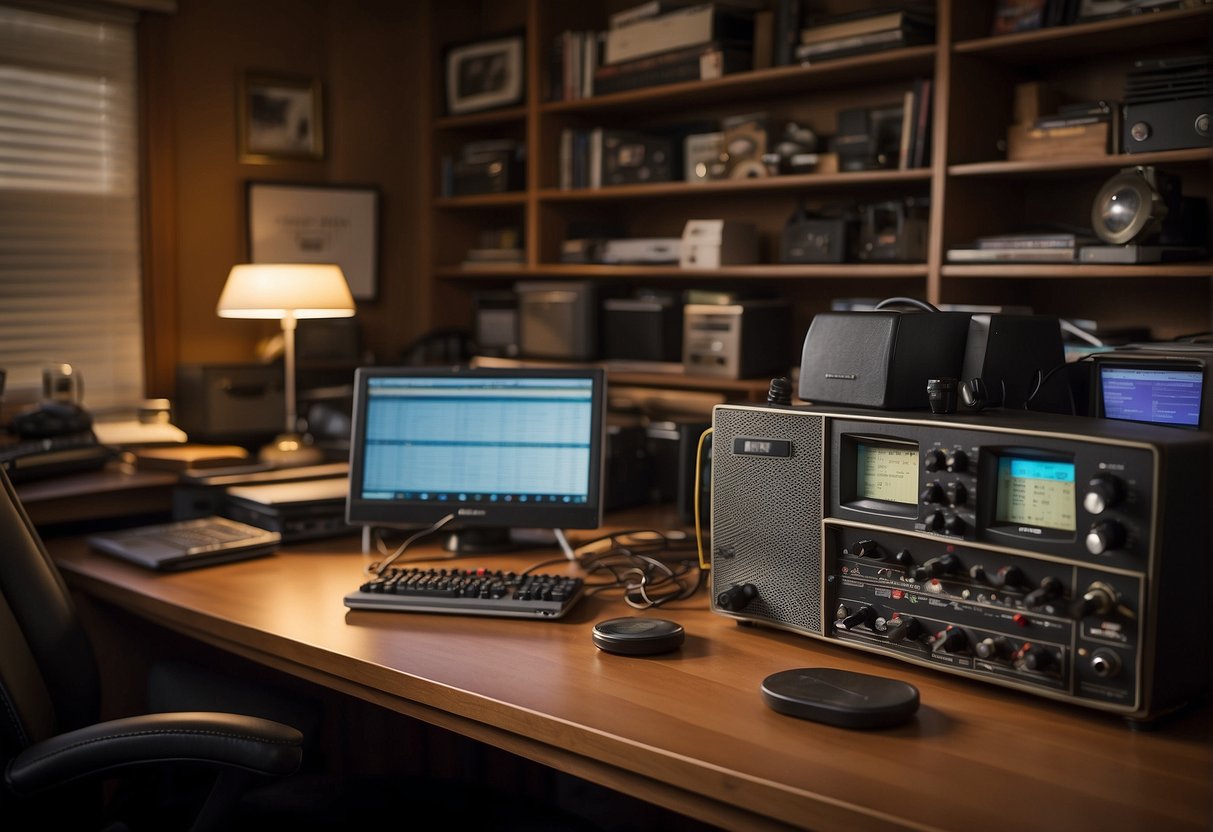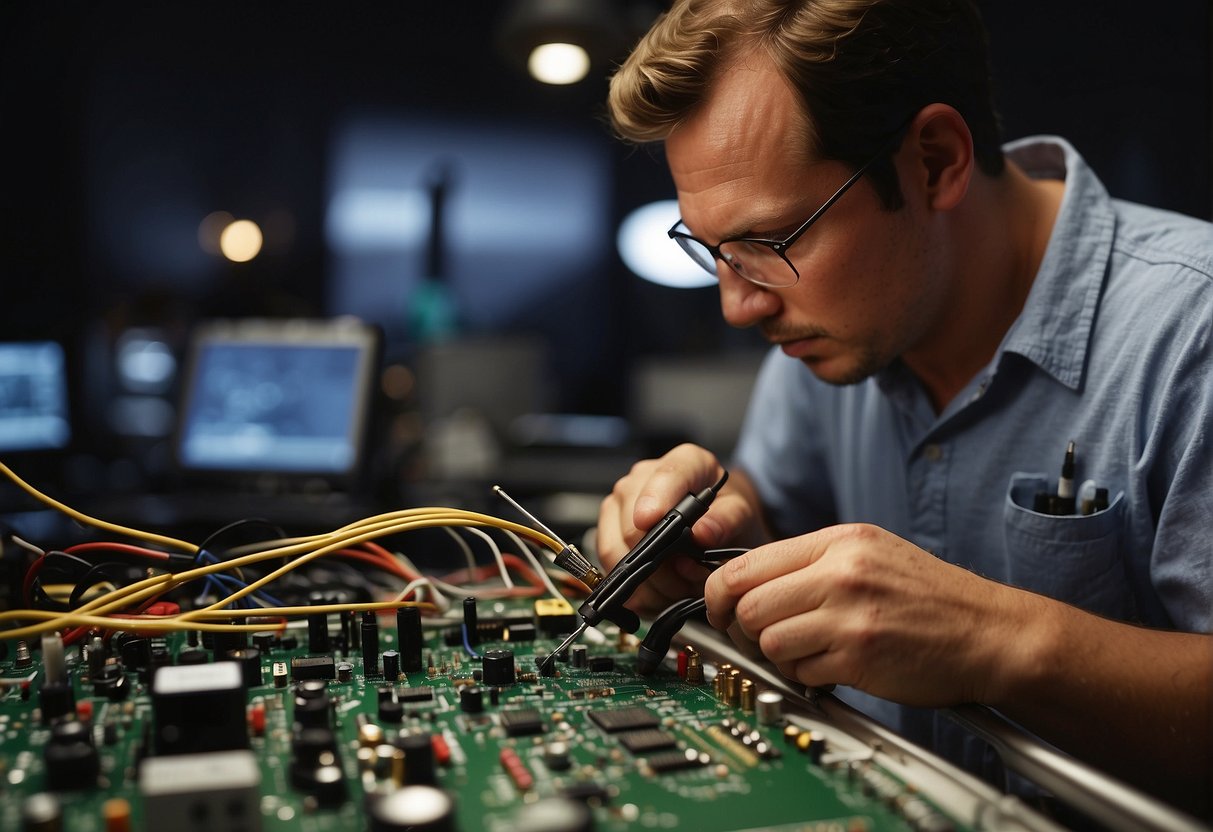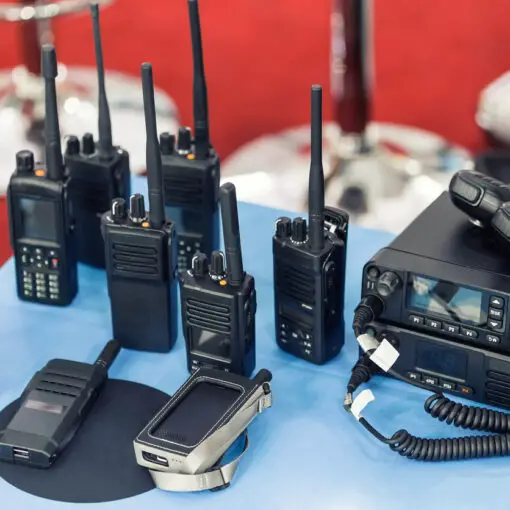In the world of amateur radio, an Elmer stands as a central figure, synonymous with guidance and wisdom. The term, unique to this community, refers to an experienced ham radio operator who volunteers their time to mentor newcomers.
These veterans play a vital role, passing down their knowledge and fostering the growth of the hobby.

An Elmer does more than just teach the technical aspects of amateur radio; they are mentors in the fullest sense, providing support and encouragement to those entering the field.
They are often seen as friends and teachers, offering advice on everything from setting up a first radio station to mastering the nuances of radio communication.
As a result, the concept of an Elmer extends beyond the bounds of a mere hobbyist relationship, reaching into the realm of personal development and community building.
Key Takeaways
- An Elmer is an experienced ham radio operator who mentors newcomers.
- Elmers play a crucial role in teaching, supporting, and advancing the practice of amateur radio.
- The mentorship provided by Elmers strengthens the amateur radio community and enriches its cultural heritage.
The Role of an Elmer in Amateur Radio
In Amateur Radio, an Elmer plays a crucial role in the continuation and expansion of the hobby by acting as a dedicated mentor.
They provide personalized support and share their expertise with those new to the field, often guiding them through their initial steps in the hobby.
Mentoring and Guidance
An Elmer serves as a mentor who offers personalized guidance to new hams navigating the multi-faceted aspects of Amateur Radio.
Through mentoring, they foster an environment conducive to learning and exploration.
Encouragement from an Elmer helps new hams prepare for license tests, understand radio etiquette, and become integrated into the ham radio community.
They often assist with the construction of first projects and provide advice on operating practices.
Technical Support and Knowledge Transfer
Beyond being a guide, an Elmer imparts technical knowledge in electronics and radio operation.
They facilitate knowledge transfer, explaining complex concepts in understandable terms and demonstrating service and maintenance procedures.
Elmering includes offering assistance on the setup of equipment and troubleshooting, ensuring that the new ham can confidently manage their station.
Their service expedites the learning curve for new hams, enabling them to fully participate in the many facets of the hobby.
Becoming an Elmer

To become an Elmer, or a mentor in the ham radio community, involves embodying certain qualities and actively engaging in the guidance of others.
This section delineates the attributes necessary for effective mentorship and outlines how one can get involved in providing this invaluable service to the amateur radio world.
Qualities of an Effective Elmer
An effective Elmer embodies a mix of interpersonal and technical skills.
Patience and clear communication are crucial, as they will be working with individuals of varying skill levels.
They should have a substantial knowledge base of ham radio operations and technology to provide accurate information.
- Technical Expertise: They must understand the intricacies of amateur radio equipment and operation.
- Willingness to Share Knowledge: Beyond knowing, an Elmer is committed to transferring their understanding to others.
- Supportive Nature: They offer assistance in a way that encourages learning and growth.
An Elmer’s role is not just to instruct but to inspire confidence in new ham radio enthusiasts.
Getting Involved with Elmering
Engaging in Elmering begins with reaching out to the amateur radio community.
Prospective Elmers can contact local ham radio clubs or join online forums.
The ARRL (American Radio Relay League), a key ham radio organization, can serve as a resource for those looking to provide mentorship.
- Join Ham Radio Clubs: These are fertile ground for Elmers to offer their expertise.
- Participate in Online Forums and Help Resources: Many newer operators look for guidance on the internet.
- ARRL’s Programs: The organization often has initiatives that match up-and-coming amateurs with experienced Elmer’s.
Commitment to the continuous learning and dissemination of knowledge makes one not only an asset to the ham radio community but also secures the future of the service by ushering in and nurturing the next generation of enthusiasts.
Elmers and the Advancement of Amateur Radio
Elmers play a crucial role in the progression of amateur radio by imparting knowledge and encouraging the cultivation of technical skills.
Educational Impact
Elmers are synonymous with being mentors in the amateur radio community.
They furnish aspirants and new operators with the foundational science and practical comprehension of electronics integral to ham radio.
Their guidance often leads to direct improvements in understanding radio equipment and antenna design, facilitating a robust educational environment in a field that is constantly evolving.
Fostering Innovation and Skill Development
Through elmering, the mentorship element of ham radio, Elmers not only transmit knowledge but also stimulate creativity and proficiency in technical skill development.
They support mentees in tackling complex problems related to radio propagation, electronic circuits, and innovative uses of technology in communications.
This fostering environment encourages experimentation, leading to advancements in techniques and equipment that propel the amateur radio field forward.
Cultural Significance and Recognition
The term Elmer holds substantial cultural significance within the ham radio community, representing a tradition of mentorship and the sharing of knowledge.
An Elmer is not just any mentor; they are the embodiment of the spirit of community in amateur radio, generously offering their time, skills, and guidance to new enthusiasts.
The American Radio Relay League (ARRL), which is a cornerstone of the ham radio community in the United States, actively promotes the Elmer tradition.
The ARRL recognizes the importance of these mentors by offering resources for new radio amateurs to connect with experienced operators.
Membership in the ARRL may often begin with the assistance of an Elmer, reinforcing the sense of community.
Recognition for outstanding Elmers is more than just verbal thanks.
The concept of the Elmer has led to the establishment of awards to honor those who have significantly contributed to the amateur radio community through mentorship.
These awards highlight the role of the Elmer in fostering growth, learning, and collaboration among radio amateurs.
| Radio Community Aspect | Role of Elmers |
|---|---|
| Knowledge Transfer | Transmitting accumulated wisdom to novices |
| Community Support | Enhancing solidarity and support networks |
| Tradition Continuance | Preserving ham radio practices and ethos |
Elmers are friends and advisors, often seen as the connective tissue that keeps the ham radio tradition alive and thriving. Their recognition goes beyond formal awards; it is reflected in the successful journeys of the countless radio enthusiasts they have guided.
Frequently Asked Questions
The term “Elmer” holds significant importance in the ham radio community as a symbol of mentorship and the propagation of knowledge. This FAQ section addresses the common queries related to the concept of Elmers.
Who can be considered an Elmer in the ham radio community?
An Elmer is an experienced ham radio operator who provides guidance and support to less experienced enthusiasts. Typically, any seasoned amateur radio practitioner willing to share expertise can be an Elmer.
What role does an Elmer play in amateur radio?
Elmers serve as mentors, offering insights into best practices, technical knowledge, and hands-on assistance to new operators. They help novices navigate the complexities of ham radio operation from equipment setup to understanding regulations.
How can someone find an Elmer to help them in ham radio?
Individuals seeking an Elmer can explore local amateur radio clubs, online forums, or dedicated platforms such as Ham Universe. These sources often connect newcomers with potential Elmers.
What are the origins of the term ‘Elmer’ within the amateur radio hobby?
The term “Elmer” originated from Rod Newkirk, who coined it in his “Hows DX” column in QST magazine. His 1971 article is credited with popularizing the term to describe helpful and experienced ham radio operators.
In what ways do Elmers contribute to the growth of the amateur radio field?
Elmers contribute by educating new hams, fostering operational skills, and promoting adherence to regulations, thus ensuring the continuation and expansion of the amateur radio hobby.
Are there formal programs for Elmers to assist new amateur radio operators?
Some amateur radio associations offer structured Elmer programs. These initiatives pair newcomers with mentors who provide structured guidance to ensure they develop a robust understanding of the hobby.





